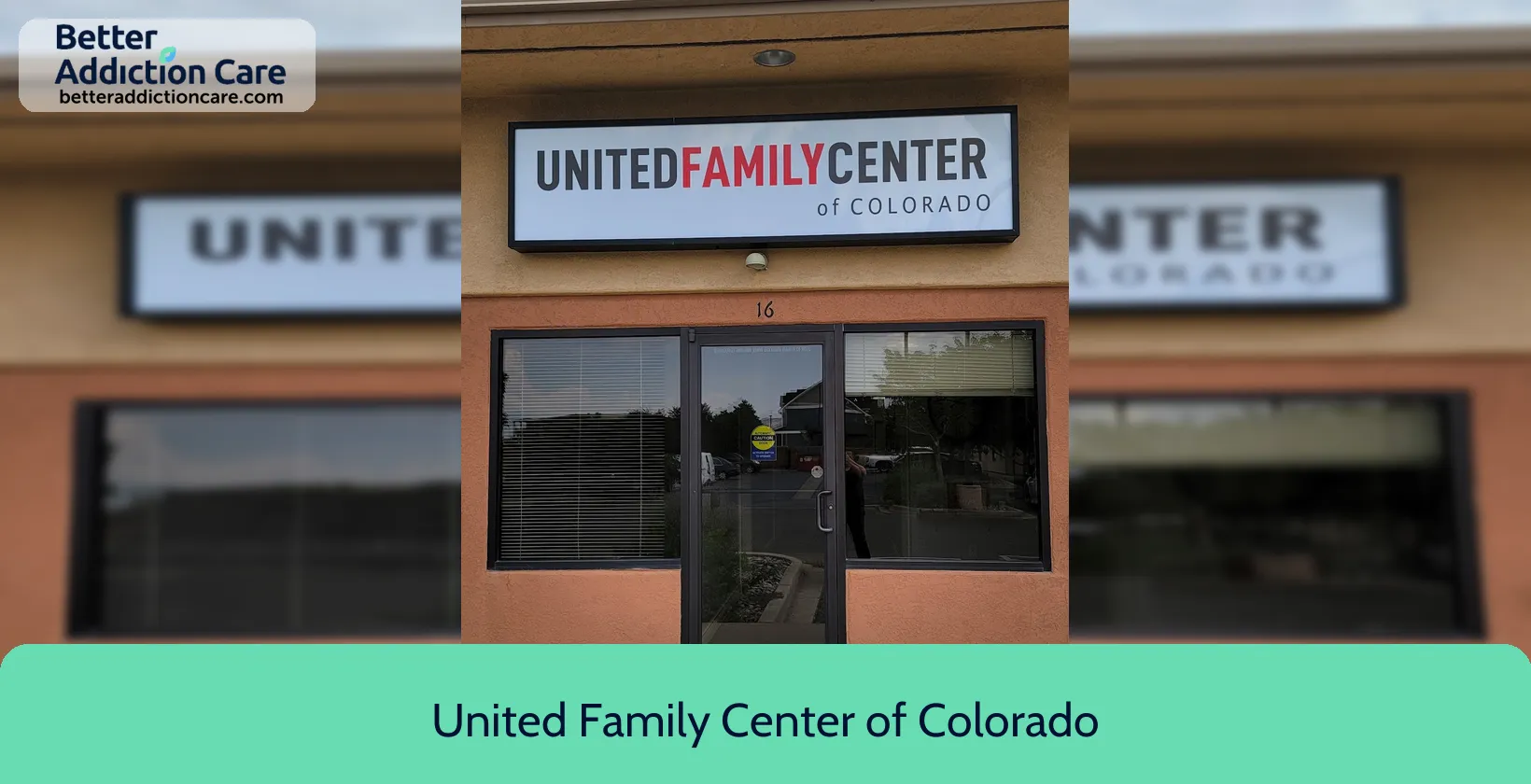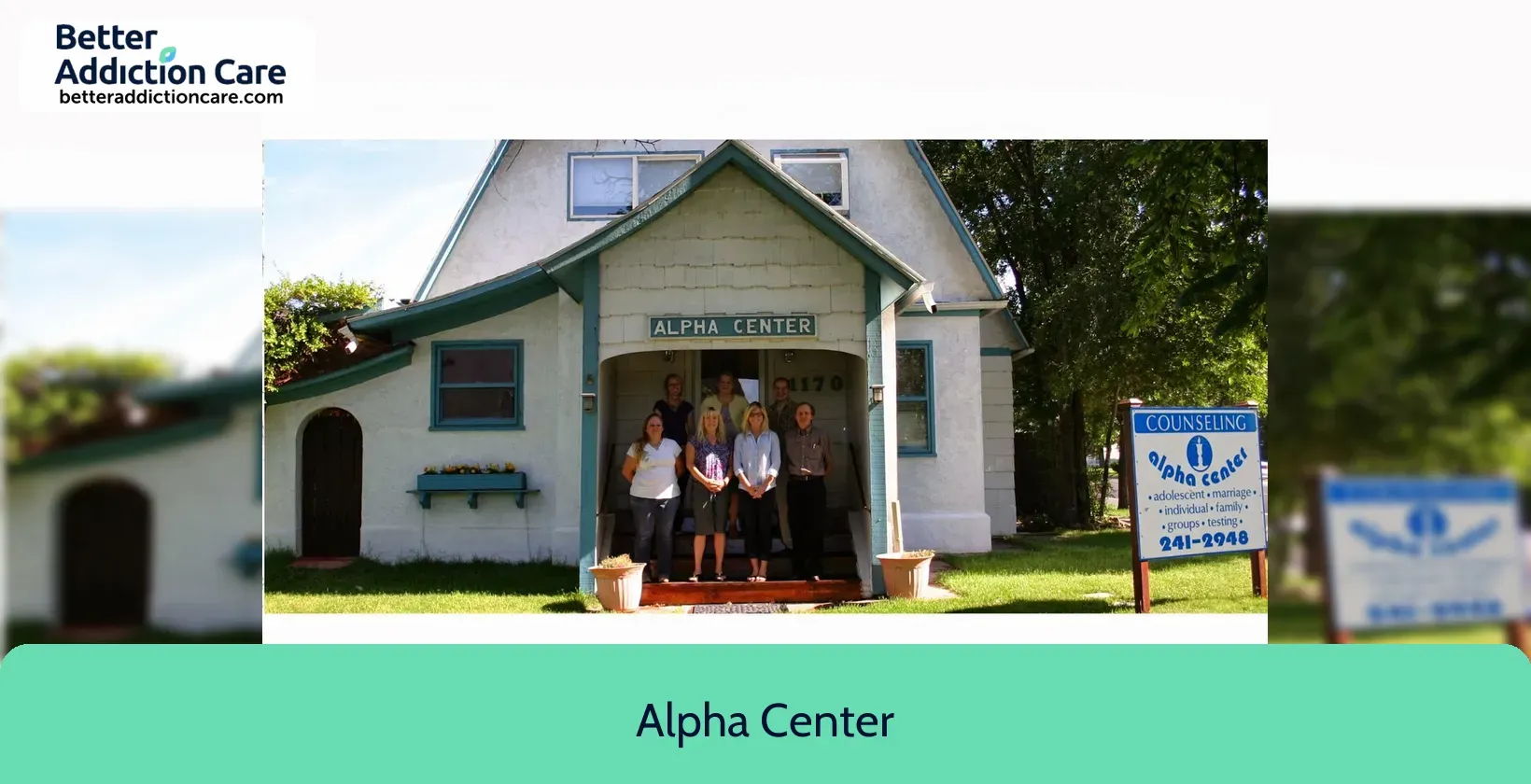Alpha Center
Overview
Alpha Center is an accredited substance abuse treatment center that provides outpatient treatment for men from 16 and 65+ years of age. As part of their special programs, Alpha Center treats clients with co-occurring mental and substance use disorders and clients who have experienced trauma. To help patients achieve sobriety, Alpha Center provides intake assessments. Afterward, patients receive cognitive behavioral therapy, telemedicine/telehealth therapy, and substance use disorder counseling during treatment. Alpha Center is located in Grand Junction, Colorado, providing treatment for people in Mesa County, accepting cash or self-payment, medicaid, and medicare.
Alpha Center at a Glance
Payment Options
- Cash or self-payment
- Medicaid
- Medicare
- State-financed health insurance plan other than Medicaid
- Private health insurance
Assessments
- Comprehensive substance use assessment
- Interim services for clients
- Outreach to persons in the community
- Screening for mental disorders
- Screening for substance use
Age Groups
- Children/adolescents
- Seniors
Ancillary Services
- Case management service
- Specially designed program for DUI/DWI clients
- Mental health services
Highlights About Alpha Center
7.03/10
With an overall rating of 7.03/10, this facility has following balanced range of services. Alcohol Rehabilitation: 8.00/10, Drug Rehab and Detox: 6.00/10, Insurance and Payments: 6.53/10, Treatment Options: 7.58/10.-
Alcohol Rehabilitation 8.00
-
Treatment Options 7.58
-
Insurance and Payments 6.53
-
Drug Rehab and Detox 6.00
Accreditations
SAMHSA certification for opioid treatment program (OTP):
SAMHSA's Opioid Treatment Programs (OTP) accreditation is a prestigious recognition that signifies a program's compliance with stringent standards and guidelines established by the Substance Abuse and Mental Health Services Administration (SAMHSA). This accreditation demonstrates an OTP's commitment to providing high-quality, evidence-based care for individuals struggling with opioid use disorder (OUD). It serves as a trusted symbol of accountability and excellence, assuring patients, families, and communities that the OTP offers safe, effective, and comprehensive treatment options for OUD.
State department of health:

Government agencies issue State Licenses, granting rehabilitation organizations permission to operate their businesses legally within specific geographic regions. The licenses needed for legal operation are typically determined by the type of rehabilitation program offered by a facility and its physical location.
Treatment At Alpha Center
Treatment Conditions
- Mental health treatment
- Alcoholism
- Substance use treatment
- Co-occurring Disorders
Care Levels
- Outpatient
- Regular outpatient treatment
- Aftercare
Treatment Modalities
- Cognitive behavioral therapy
- Telemedicine/telehealth therapy
- Substance use disorder counseling
- Trauma-related counseling
- Treatment for gambling disorder
Ancillary Services
Additional Services
- Pharmacotherapies administered during treatment
- Discharge Planning
- Breathalyzer or blood alcohol testing
Special Programs
- Clients with co-occurring mental and substance use disorders
- Clients who have experienced trauma
Get Help Now
Common Questions About Alpha Center
Contact Information
Other Facilities in Grand Junction

7.51

7.11

7.80

6.71

6.74
Browse rehab centers near Grand Junction and in other cities across Colorado
DISCLAIMER: The facility name, logo and brand are the property and registered trademarks of Mind Springs Health, and are being used for identification and informational purposes only. Use of these names, logos and brands shall not imply endorsement. BetterAddictionCare.com is not affiliated with or sponsored by Mind Springs Health.

